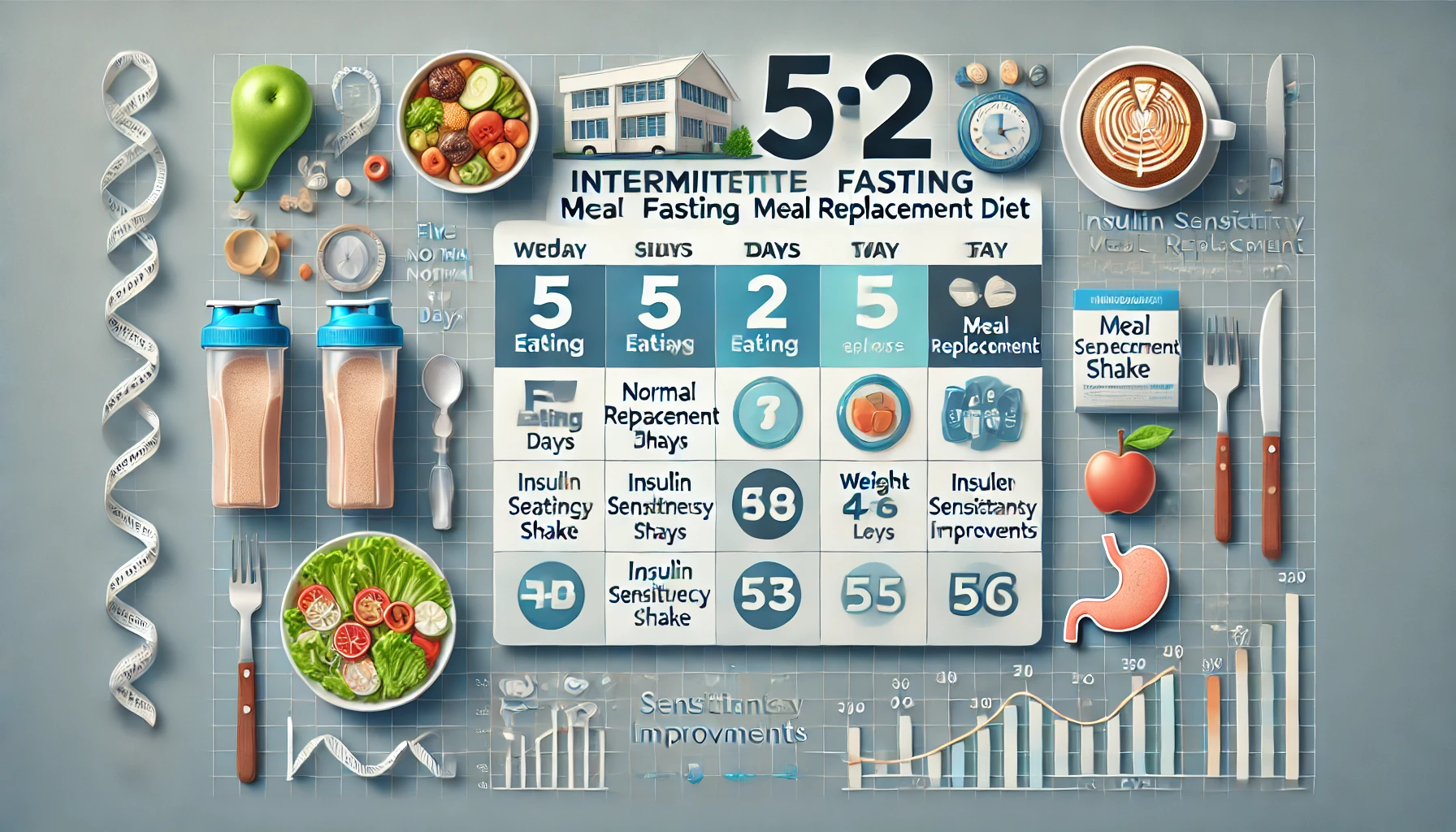Table of Contents
5:2 Intermittent Fasting (IF) Meal Replacement Diet Enhances Glycemic Control in Adults with Diabetes
Intermittent fasting has gained significant popularity as an effective dietary approach for weight loss and overall health improvement. Among the various methods, the 5:2 intermittent fasting diet stands out for its simplicity and flexibility. Recently, a study published in JAMA Network Open explores the impact of the 5:2 intermittent fasting meal replacement diet on glycemic control in adults with diabetes. This innovative approach offers promising results, providing new hope for individuals managing diabetes.

Understanding the 5:2 IF Diet
The 5:2 intermittent fasting diet involves eating normally for five days of the week while restricting calorie intake to around 500-600 calories on the remaining two days. This approach not only aids in weight management but also has potential benefits for metabolic health, particularly for individuals with diabetes.
Benefits of Intermittent Fasting for Diabetes
- Improved Insulin Sensitivity: Intermittent fasting can enhance insulin sensitivity, allowing the body to use insulin more effectively. This is crucial for managing blood sugar levels in individuals with diabetes.
- Weight Loss: By promoting weight loss, intermittent fasting helps reduce insulin resistance and improve overall glycemic control.
- Reduction in Inflammation: Intermittent fasting has been linked to decreased levels of inflammation, which is beneficial for preventing complications associated with diabetes.
The Study: 5:2 Meal Replacement Diet and Glycemic Control
The study published in JAMA Network Open investigated the effects of a 5:2 intermittent fasting meal replacement diet on glycemic control in adults with diabetes. The participants followed a meal replacement plan on the two fasting days, consuming specially formulated low-calorie meals. The primary focus was on assessing changes in HbA1c levels, a key indicator of long-term blood glucose control.
Key Findings
- Significant Reduction in HbA1c Levels: The study revealed that participants who adhered to the 5:2 meal replacement diet experienced a notable reduction in HbA1c levels. This indicates improved blood glucose control over the study period.
- Weight Loss and Improved Body Composition: Participants also showed significant weight loss and improved body composition, with a reduction in body fat percentage.
- Enhanced Quality of Life: The diet positively impacted participants’ quality of life, with reported improvements in energy levels and overall well-being.
Practical Implementation
For individuals with diabetes interested in trying the 5:2 intermittent fasting meal replacement diet, it is essential to consult with a healthcare professional before making any dietary changes. Here are some practical tips for implementing this diet:
- Choose Nutritious Meal Replacements: Opt for meal replacements that are specifically formulated to provide essential nutrients while being low in calories.
- Stay Hydrated: Ensure adequate water intake, especially on fasting days, to stay hydrated and support overall health.
- Monitor Blood Sugar Levels: Regularly monitor blood sugar levels to ensure they remain within the target range and adjust the diet as needed.
- Combine with Physical Activity: Incorporate regular physical activity to enhance the benefits of the diet and support overall health.
The 5:2 intermittent fasting meal replacement diet offers a promising approach for improving glycemic control in adults with diabetes. By significantly reducing HbA1c levels and promoting weight loss, this diet can be a valuable tool in diabetes management. For more detailed information on the study, you can read the full article on JAMA Network Open here.
More blogs: https://sleepingsirens.com

